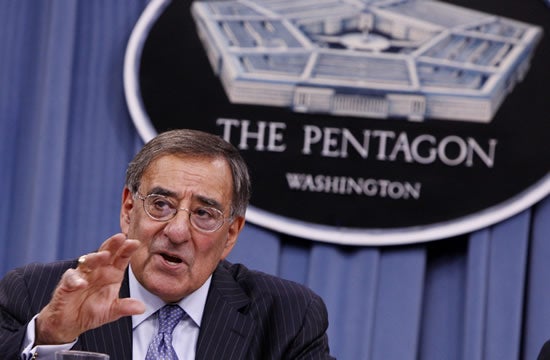The Obama Administration is granting legitimacy to Chinese and Russian claims that strengthening U.S. missile defenses are aggressive and instigate conflict.
More recently, it has done so regarding plans to place a second missile defense radar in Japan to defend against North Korean missiles.
At a recent joint press conference between U.S. Secretary of Defense Leon Panetta and Japanese Defense Minister Satoshi Morimoto, Panetta emphasized that the radar is in response to the increasing threat from North Korea’s ballistic missiles and does not threaten China. If history is indeed a good teacher, one can deduce that China will oppose the move, as Beijing has increased its opposition to U.S. missile defense in the Asia-Pacific.
The Obama Administration is right to cooperate with Japan in this way but wrong to emphatically assure China that the radar won’t diminish the ability of China’s missiles to hit U.S. ships. It is similarly wrong to assure Russia in the context of Eastern European missile defense cooperation.
The Administration’s plan to place missile defense assets in Europe to defend against incoming short- and medium-range ballistic missiles has angered Moscow. The systems, it says, are a threat to its own nuclear missile force and are therefore “destabilizing.” In March, President Obama was caught by an open microphone begging then-Russian President Dmitry Medvedev to give him “space” on missile defense until after the American election, when he would “have more flexibility.” Presumably he would be able to weaken or entirely abandon the plan in exchange for Russian approval. Just two months later, a senior Russian official threatened to attack European-based American missile defense sites.
Indeed, U.S. missile defense systems are currently designed to defeat the kinds of limited threats posed by rogue nations such as North Korea and Iran. But it is vitally important that the U.S. government make clear that it will not purposely limit the development or deployment of the system because of China’s and Russia’s opposition.
They oppose it, in part, because it takes away their ability to target U.S. military assets or cities. This is a reason to strengthen our efforts to increase security, not a reason to weaken them. Presumably, U.S. systems will one day be able to intercept Russian and Chinese missiles. This is not something to apologize for or avoid.
If the Chinese are concerned that the discriminating radar in Japan will diminish the effectiveness of its increasingly deadly anti-ship missile arsenal, we shouldn’t be assuring Beijing that it will not. Instead, the U.S. should assert its right to freedom of navigation in international waters and the right and commitment to protect itself from any country that desires to impede it.
U.S. missile defense is exactly that—defense against offensive missiles. It isn’t aggressive. Nor is it a “threat” to stability. It is, and will continue to be, an asset to the furtherance of peace and an answer to those who would threaten it.
Rebeccah Heinrichs is a Visiting Fellow in the Douglas and Sarah Allison Center for Foreign Policy Studies at The Heritage Foundation.
























